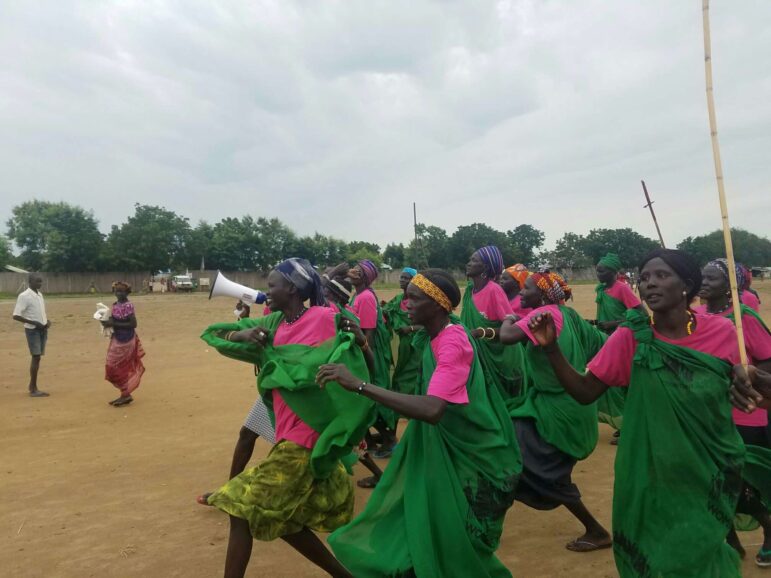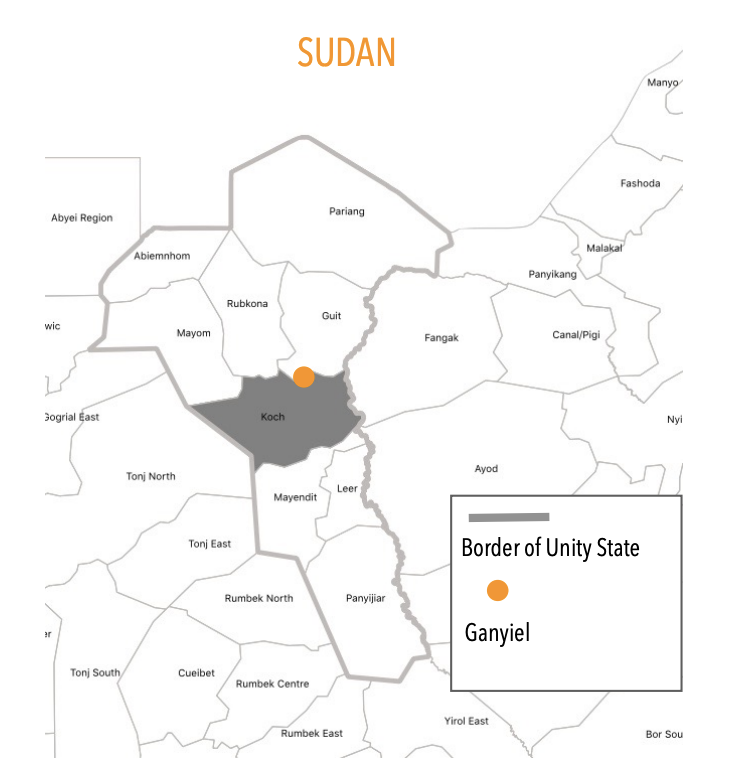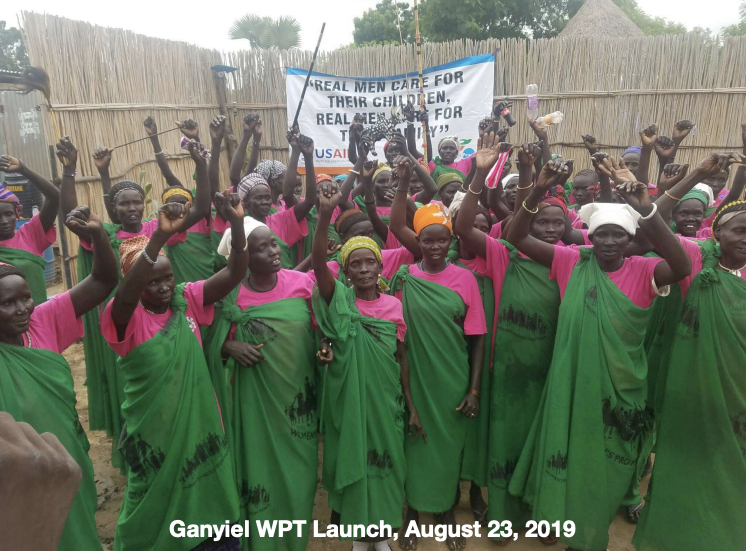Women Protection Team Launch in Ganyiel
“Our voices regarding the different types of gender-based violence especially to women and girls are embodied in our songs, and we hope that the whole community has heard our message. I encourage that all members of the Women’s Protection Team be committed and work hand in hand as we begin our journey. NP is there to guide us … Ganyiel.” - WPT Chairperson, WPT Launch, August 23, 2019

In September 2018, Nonviolent Peaceforce, through its Southern Unity Mobile Team, began conducting mobile missions to Greater Ganyiel to assess the possibility of establishing a static field site in Greater Payinjar County. During the missions, the team conducted dialogues and consultations with local stakeholders, humanitarian actors, and members of the community to gain insight into the protection and security concerns in the area as well as to begin the process of gaining acceptance and trust from local authorities and the community at large. However, throughout the meetings and consultations in the various payams and bomas throughout the Payinjar county, the team observed one commonality: the voices of women and girls were rarely heard over the voices of their male counterparts. To respond to this observation, the team began conducting awareness-raising and capacity-building activities on topics such as gender, women’s rights, and gender-based violence (GBV) to both men and women in the community.
Nonviolent Peaceforce established a static base in Ganyiel in January 2019 and began the process of forming the community’s first WPT in February 2019. Inspired by one of the pillars of UCP which is the primacy of local actors, the team knew that engaging and mobilizing women was key to helping them advocate for and address the issues affecting them, thereby fostering community-led solutions to women’s protection that could endure long after NP leaves Ganyiel. Utilizing the foundational knowledge provided by NP in its initial SGBV trainings along with further trainings on UCP, conflict management, and GBV prevention and response, the women were ready to mobilize and begin serving their communities.
With SGBV a perpetual problem impacting every facet of women’s lives throughout South Sudan, the WPTs decided to respond by taking the bold step of spearheading a GBV awareness-raising campaign on August 23, 2019, the day the Women’s Protection Team (WPT) was officially launched. With the theme, “Real men care for their children, real men care for their family,” this newly formed WPT talked bravely in front of the local authorities, NGO representatives, and members of the community about SGBV and the harmful traditional practices affecting women, such as early and forced marriage. The women marched through Ganyiel Center to disseminate their message, an event that culminated with speeches from members of the WPT as well as local and traditional authorities. During these speeches, the payam administrator announced, “Nonviolent Peaceforce should form Women Peacekeeping Teams in every payam across Greater Ganyiel in order to maintain proper and peaceful means in resolving conflicts and problems in the community…”
In the next phase of the project beginning on September 11, 2019, NP will provide the WPTs with further trainings on unarmed civilian protection (UCP) to enhance their understanding that they are playing an important role in protection of their communities contrary to the traditional concept that protection is primarily carried out by NGOs or by armed actors.
NP will also provide more advanced courses, and refresher courses when needed, on previously covered topics such as GBV prevention and response and the child protection and GBV referral pathways. To foster the implementation of this knowledge, the team will mentor and assist WPTs in awareness raising and advocacy on issues such as SGBV and harmful traditional practices. These trainings, workshops, and mentoring sessions will increase the capacity of the WPTs to serve as sustainable and locally-led community protection mechanisms while supporting WPT members in raising their voices and addressing the concerns of women and vulnerable members of their communities.


